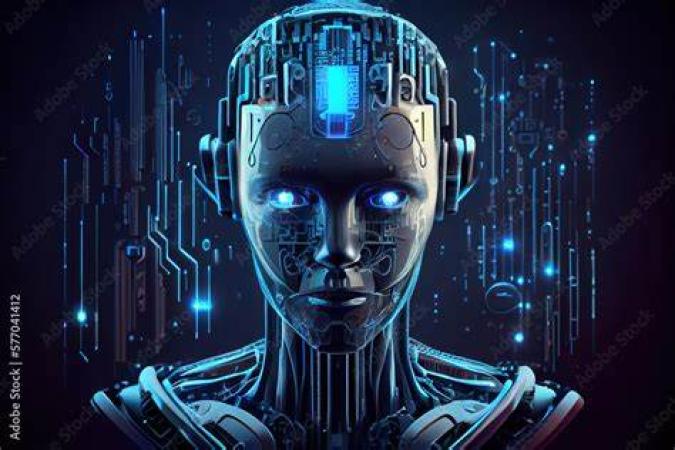By Mennah Darwish
I'm interested in both robotics and artificial intelligence (AI), and I've always been amazed at how these two fields interact. From self-driving cars to robotic assistants, artificial intelligence is transforming robotics in ways we could only have envisioned in science fiction movies. In this essay, I'll go over how artificial intelligence is affecting robotics and why I find it so intriguing.
Unlike conventional robots that adhere to preset instructions, AI-powered robots are able to learn, adapt, and make decisions in real time.
- Robots can improve their performance through machine learning (ML) and data analysis (e.g., a robotic arm learns the optimal method to grip items).
- Computer Vision: Artificial Intelligence (AI) makes it possible for machines to "see" and recognize objects (e.g., Tesla's self-driving cars can recognize pedestrians).
- Natural Language Processing (NLP): Voice-activated robots, like Amazon's Astro, can understand and respond to human speech.
Seeing the Boston Dynamics robots perform parkour or the OpenAI robotic hand solve a Rubik's Cube is surreal; it's like witnessing a new era.
One of the hardest problems for robots is to make decisions in uncertain situations. AI changes that:
- Self-driving cars (such as Tesla and Waymo) use AI to control traffic, avoid collisions, and even predict how a human driver might act.
- Delivery robots like Starship use artificial intelligence to plan routes and avoid collisions.
- Industrial robots in factories are currently using AI to detect product defects with superhuman accuracy.
A drone delivering a package by itself was described in an article I once read; it looked amazing, but it was just artificial intelligence at work.
There are already AI-powered robots in daily life:
- Roomba vacuums are referred to as home assistants because they are able to recognize room layouts.
- AI-assisted surgical robots are known as healthcare robots, and examples include the Da Vinci system.
- Customer service bots interact with consumers, like SoftBank's Pepper robot.
Robots and AI are combining faster than ever before. As a tech enthusiast, I'm eager to see what will happen next—domestic robots like Jetsons or AI companions like Wall-E?
What are your thoughts? Regarding AI-powered robots, are you enthusiastic or wary?

